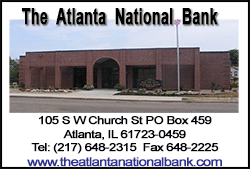|
 Protesters, who have occupied some of Hong Kong's most
economically and politically important districts for nearly six
weeks, are frustrated with the city government's inability to
negotiate and are hoping to send a delegation to Beijing. Protesters, who have occupied some of Hong Kong's most
economically and politically important districts for nearly six
weeks, are frustrated with the city government's inability to
negotiate and are hoping to send a delegation to Beijing.
"To make the conversation become a reality we need to find a
'middleman' such as Tung Chee-hwa or Rita Fan who can make the
arrangements and make the trip workable," Hong Kong Federation of
Students' (HKFS) leader Alex Chow told reporters.
Tung is a former Hong Kong chief executive while Fan is a former
president of the city's legislative assembly and a delegate to
China's largely rubber stamp parliament.
Chow said the city government was incapable of resolving the
standoff over the protesters' demands for greater democracy and only
Beijing could do so.
"That is why we think a visit to Beijing is needed," he said.
 China has ruled the former British territory since 1997 under a "one
country, two systems" formula which allows wide-ranging autonomy and
freedoms not enjoyed on the mainland.
The protesters, led by a restive generation of students, are
demanding fully-democratic elections for the city's next chief
executive in 2017, not the vote between pre-screened candidates that
Beijing has said it will allow.
Chow did not say who would be part of the students' delegation or
when it might go, except to say it need not take place during this
weekend's Asia-Pacific Economic Cooperation forum meeting in the
Chinese capital.
Such a delegation would be highly controversial and there is no
guarantee that China would allow pro-democracy activists in.
SCUFFLES
Earlier on Thursday, protesters clashed with police in the densely
populated district of Mong Kok, one of three remaining demonstration
sites, for the first time in more than two weeks.
Dozens of police armed with batons and shields swept into the area
where hundreds of protesters were gathered and scuffles broke out
after midnight.
[to top of second column] |

More than 30 people wearing grinning masks of Guy Fawkes, who
plotted to kill a British king in 1605 and who has become a symbol
of anti-capitalist protests.
The protests drew well over 100,000 at their peak and are now
concentrated in two key areas - the district of Admiralty next to
government buildings and across the harbor in Mong Kok.
A handful of protesters remain in the bustling shopping district of
Causeway Bay.
Some Hong Kong business people have called for the protests to end,
saying they are undermining confidence in the free-wheeling
capitalist hub.
Hong Kong leader Leung Chun-ying signaled on Tuesday that a
much-anticipated plan to link the Shanghai and Hong Kong stock
markets had been delayed as a result of the protests and urged
society to pull together to restore order in the city.
Pro-democracy activists plan to march on Sunday from the heart of
the city's financial center to the Chinese central government's
liaison office in Hong Kong.
(Additional reporting by Twinnie Siu, Kinling Lo and Clare Baldwin;
Writing by Anne Marie Roantree; Editing by Michael Perry and Robert
Birsel)
[© 2014 Thomson Reuters. All rights
reserved.] Copyright 2014 Reuters. All rights reserved. This material may not be published,
broadcast, rewritten or redistributed.
 |